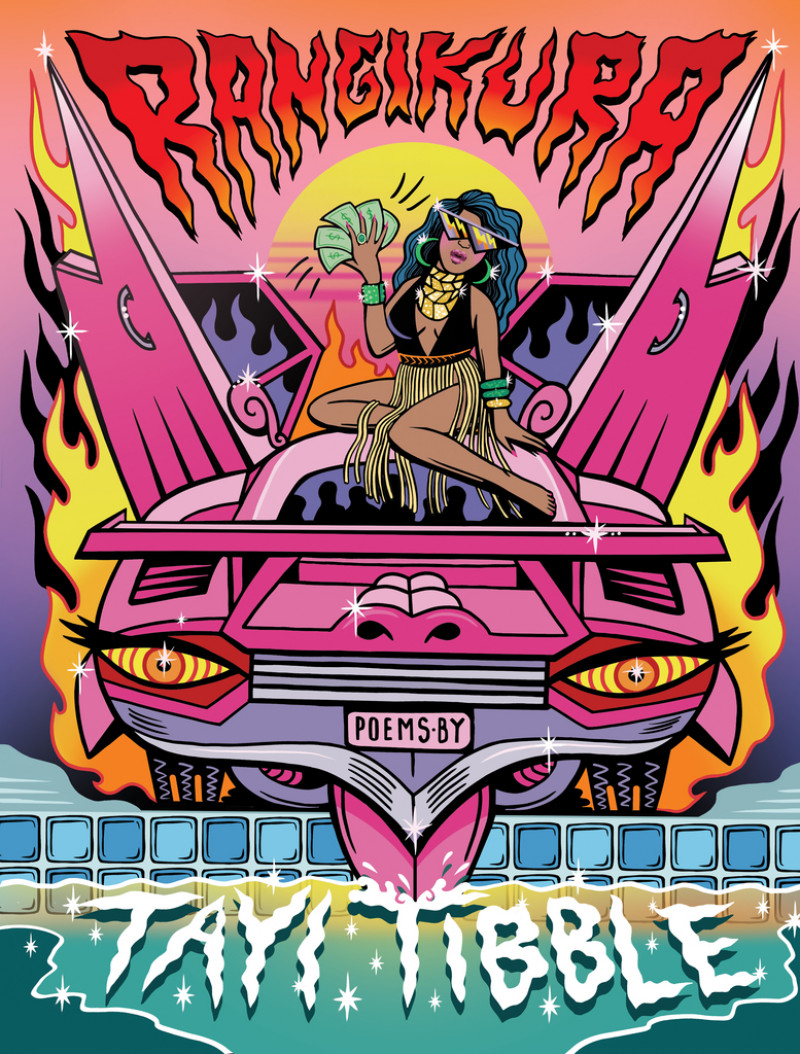Rangikura
Written by: Tayi Tibble
Te Herenga Waka University Press
Reviewed by: Miya Dawson
Tayi Tibble’s strong narrative voice explodes from the page right from the beginning of Rangikura. This is Tibble’s second book of poetry, her first being the award-winning Poūkahangatus, and having read reviews of both I have yet to see anyone unimpressed by her poetic prowess. On the surface level, Rangikura covers topics like womanhood, mythology, relationships, and pop culture. Looking deeper, it is a window into a worldview.
Reading the poems, you see the world through the eyes of a girl pursuing “an endless summer” (according to the blurb), growing up deeply connected to her ancestors but navigating the social politics and temptations of the modern world. In Hine-nui-te-pō and Te Araroa, Tibble explores the unique relationships a girl has with her mother, with lines like “reconciling what it means to be her daughter” and “I’m air just like my mother”. Lil Mermaidz and Takakino cover close female friendships, girls who swim together as “Tangaroa’s daughters” and girls who make a blood pact together in a gutter. The 17-part Little explores the emotional complexity of a relationship with an older man.
Kehua / I used to want to be the bait that caught Te Ika was a standout poem for me, blending Māori mythology and the Chinese zodiac as the young narrator tries to have fun and find some agency for herself by pulling over men in the suburbs. “Full of confidence and concoctions”, she walks around the streets with friends, enjoying the chase yet ultimately learning “I don’t have to kill a rabbit to know it has a heart”.
The collection is not perfect – some of the early poems feel overly similar to each other, and I would have liked to have been more surprised by unusual turns of phrase or wordplay. For readers unfamiliar with Māori culture, it might require a bit of Googling. But ultimately, it is well worth the read. For a masterclass in strength, tone, and blending the ancient with the modern, you can look no further than Rangikura.
View more reviews:
« Click here


